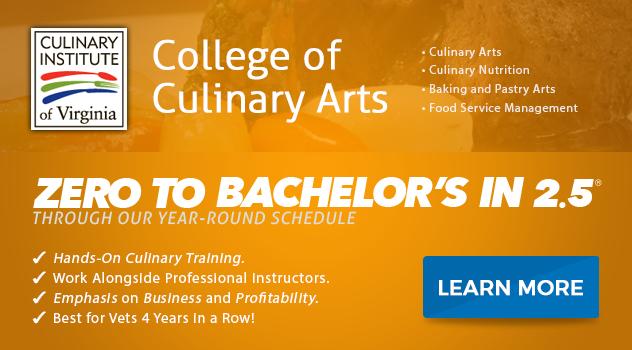Culinary Nutritionist: How Do They Help People With their Skills?
At face value, many people could tell you that a culinary professional has to exhibit some pretty unique skills in order to be successful at their job, including unsurpassed safety measures, sanitation, and of course, culinary techniques. On the other hand, many skills exist below the surface that the average person may not recognize as quickly. These include a keen business sense, mathematical reasoning, creativity, etiquette, and the ability to address a changing population with menu choices that cater to various tastes, cultures and lifestyles.
Dynamic and Applicable Expertise
Due to the intensified surge and expanded curiosity of the public regarding food traceability, quality ingredients, and links between chemical additives, allergies, and chronic diseases, the culinary field has slowly begun expanding into nutritional science and a new professional has emerged, known as a culinary nutritionist. This allows the culinarian to step outside of the proverbial box and pair culinary techniques with innovative nutritional science that continues to link poor lifestyle choices to chronic disease.
Culinary nutritionists are able to take the skills they gain from a strong culinary backbone and fuse them with flavor-boosting techniques that enhance health in their target population. Best of all, this new field thrives on culinary creativity at the forefront during menu design and in the creation of delicious meals that are conceived to promote health but that also taste and look amazing.
Addressing the Diverse Health Needs of Today’s Population
The culinary nutritionist has arisen in a desperate time where the Standard American Diet has been linked to many chronic and preventable diseases as part of an inflammatory lifestyle. Because of current disease issues like obesity, diabetes, heart disease, and metabolic syndrome, this has created a need for a new professional to bridge the gap between knowledge and action.
Everyone knows that vegetables are healthy, but who wants to eat flavorless food that fails to excite the senses? This is where the culinary nutritionist shines, especially when it comes to meal planning for various conditions. They can capitalize on their ability to not only add color and flavor to meals, but they can transform food into something that is decadent that also speaks to individual conditions.
When talking about fresh ingredients, herbs, spices, natural flavor enhancers and the utilization of real food over fake, processed ingredients that promote the inflammatory cascade, the culinary nutritionist can help lessen the divide when it comes to the mere desire to eat healthy and help create a doable action plan with delicious, life-sustaining foods for a population that is hungry for change.
Nutrition Education is Key, But Why?
Currently, everyone seems to have nutritional advice for the latest and greatest way to achieve health, however, the beauty of nutritional science is that there are no “one size fits all” hacks that look exactly the same in everyone. Because of this, problems can arise when someone fails to have the proper qualifications to disseminate meaningful, scientifically-based nutritional information that speaks to an individual’s needs based on background, underlying health concerns, medications, allergies, and even lifestyle factors.
In order to recognize the complex and multifactorial needs of a changing population, nutrition education is a fundamental component for proper training in culinary nutrition. Not to mention that completion of specialized culinary nutrition education at an accredited school also opens the door for the Certified Dietary Manager exam which is a coveted title allowing a culinary nutritionist to become a nationally-recognized expert that can manage practically any kitchen in any facility in the United States.
In other words, some people can call themselves a nutrition professional, but few actually have the credentials to back it up. There is absolutely no denying a culinary nutritionist who is also a certified dietary manager. Especially when it comes to nutrition, sanitation, safety, food service management, and individualized menu planning.
Do you love preparing delicious meals that bring smiles to the faces of the people you serve? Passionate about health, nutrition, and quality ingredients? Perhaps you would be right for an Associate of Applied Science in Culinary Arts and Applied Nutrition. ECPI University’s Culinary Institute of Virginia offers this exciting degree path at an accelerated rate. For more information, connect with a knowledgeable admissions advisor today.
It could be the Best Decision You Ever Make!
DISCLAIMER – ECPI University makes no claim, warranty, or guarantee as to actual employability or earning potential to current, past or future students or graduates of any educational program we offer. The ECPI University website is published for informational purposes only. Every effort is made to ensure the accuracy of information contained on the ECPI.edu domain; however, no warranty of accuracy is made. No contractual rights, either expressed or implied, are created by its content.
Gainful Employment Information – Culinary Nutrition - Associate’s
For more information about ECPI University or any of our programs click here: http://www.ecpi.edu/ or http://ow.ly/Ca1ya.





